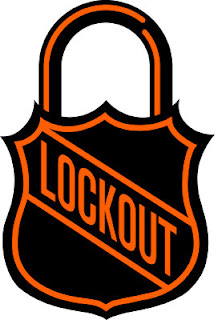 It was only a matter of time until the ubiquitous worlds of law school-related rankings and Moneyball collided. I didn't expect the convergence, however, to be found by Berkeley Law Professor John Yoo, a controversial figure based on his authoring of "torture memos" during the presidency of George W. Bush.
It was only a matter of time until the ubiquitous worlds of law school-related rankings and Moneyball collided. I didn't expect the convergence, however, to be found by Berkeley Law Professor John Yoo, a controversial figure based on his authoring of "torture memos" during the presidency of George W. Bush.In a new study, Yoo and a co-author claim to have a list of the 50 most relevant law professors. The ranking is based entirely on citations in law review articles. And only professors at the so-called "top 16" law schools are eligible for ranking. Yoo, who according to his own study is the 24th most relevant law professor, blogs about his study on Richochet in a post he titles "Moneyball Comes to the Ivory Tower".
I don't think Billy Beane (or, if you prefer, Paul DePodesta or Daryl Morey or Mike Zarren or Dean Oliver) would be proud. What about teaching? Or helping students learn how to actually practice law? Or helping students get an internship or, better yet, a job? Law students are largely footing the bill of legal education and I suspect what's most "relevant" to them is getting a job out of a law school, or at least real-world experience while in school. It's true some of those qualities may be difficult to quantify, but if a so-called "Moneyball" study alleges to measure "relevance" it should do just that.
In fairness to Yoo, he acknowledges the study's limitations and he recognizes that teaching is important: "Finally, faculty also teach and have other responsibilities within and without law schools, and citation studies can never measure these important professional functions". But the tone of "faculty also teach" to me, at least, does not signal that Yoo views teaching as important of a priority. Which it should be. He also doesn't seem to address the crucial role of faculty in helping students obtain real world experiences and employment.
Also, as noted in a Facebook comment by Jacob Gottlieb, having many citations is not necessarily a good thing, especially if you are frequently cited in rebuke. And this may be true of Yoo, who is often cited by other law professors in a negative way.
And there's the argument against a study like this on grounds that law review articles do not influence judges or law makers, and may just be an overweening form of currency for law professors to make and keep tenure. I don't endorse that view, but I also believe that other qualities are probably more important, and teaching and helping students with internships and jobs are among those qualities.
Lastly, there's a powerful point raised by Ken Houghton in the comments section below. Moneyball is based on identifying efficiencies to obtain a competitive advantage over other teams. For many years, baseball teams undervalued on base percentage and runs scored; Beane, with good counsel, was among the first general managers to correctly value those metrics and that gave him an advantage over other teams in evaluating players. Evaluating law professors based on their legal scholarship and how often they are cited in legal scholarship, in contrast, has been around forever. Yoo seems to have developed a new method of evaluating citations, but that is different from identifying undervalued efficiencies in evaluating faculty. A true "Moneyball professor", in other words, is probably one undervalued by the very metric Yoo proposes.
For another take on Yoo's study, see David Lat's post on Above the Law.
